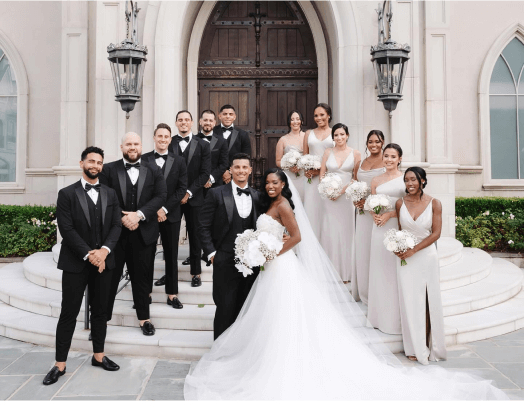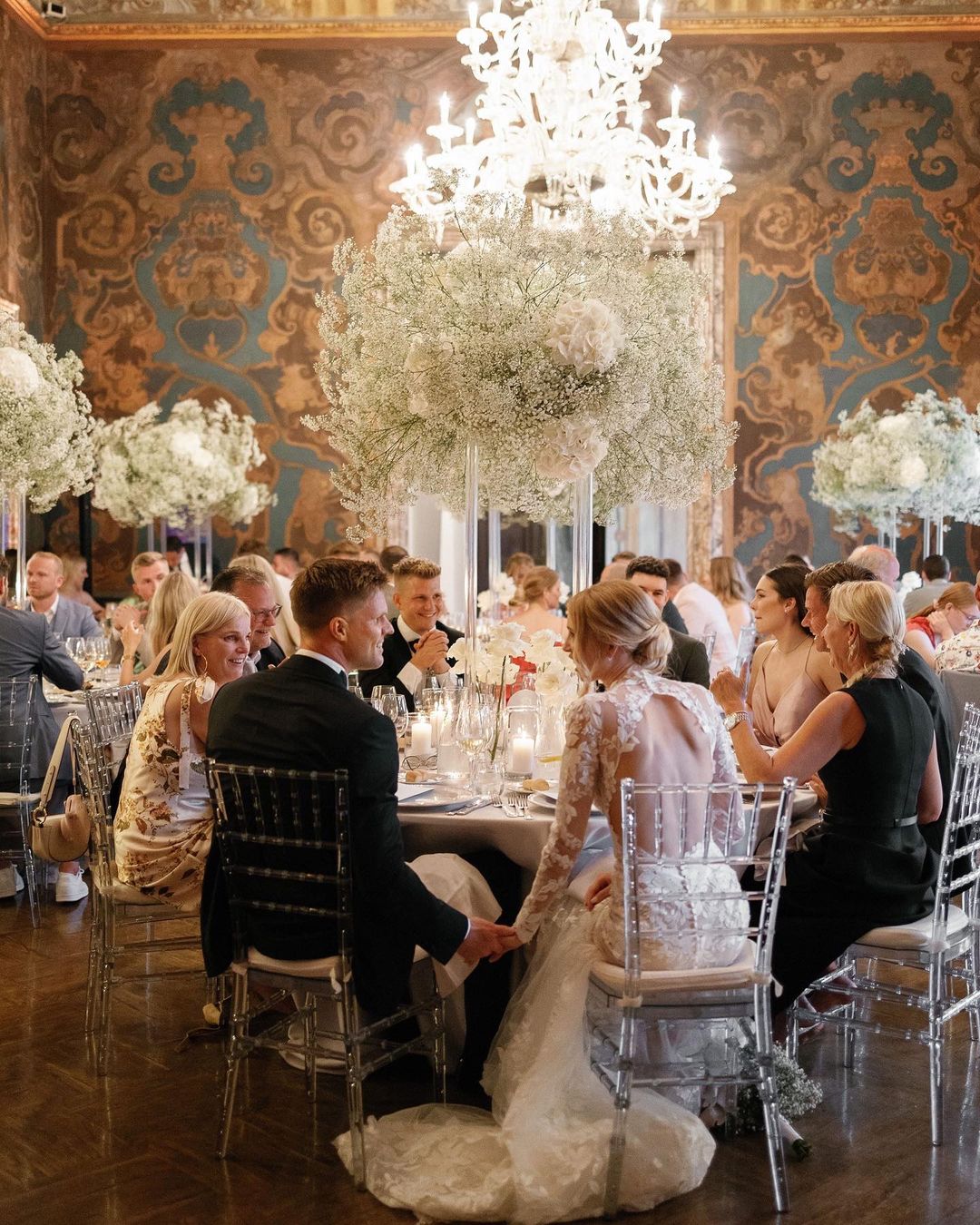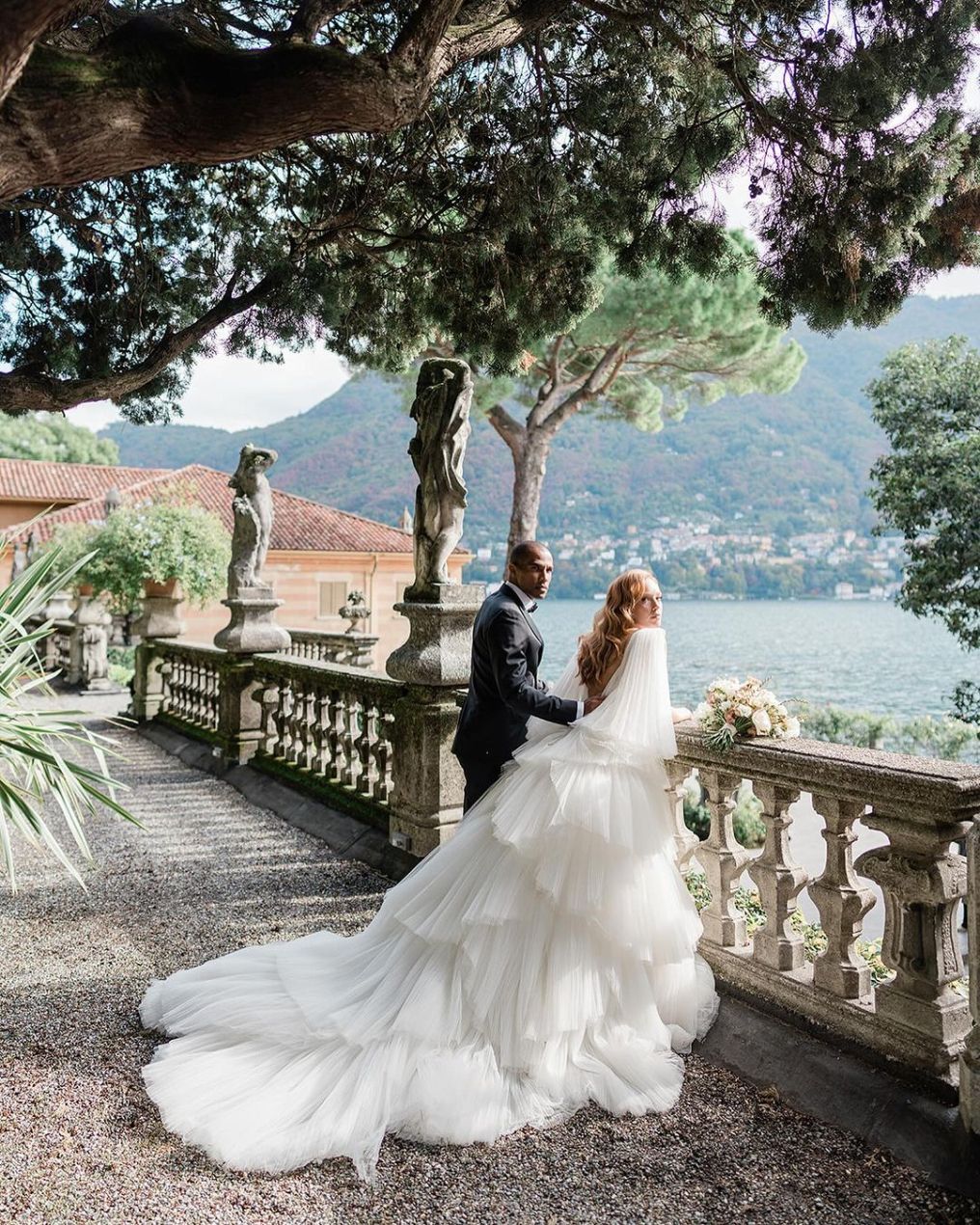Getting Married in Como: A Legal Guide for International Couples
- Author: Natali Grace Levine
- Reading time: 6 min 7 sec
- Publication date: 04/05/2024
- Updated: 06/23/2025
With Como’s glittering blue waters, grand villas, and charming lakeside towns, it's easy to see why so many couples are drawn to this Italian paradise. However, before you can officially declare your eternal love in Lake Como, there are several legal requirements that international couples must navigate. Ensuring you have all the necessary documents and follow the proper procedures is crucial to making your dream lakeside wedding a reality without any bureaucratic snags.
In this how-to guide to getting married in Como, we'll walk you through all the bureaucratic particulars, legal prerequisites, and formal procedures required for international couples to get married in this breathtaking region. Consider this your go-to resource for crossing those legal t's and dotting those i's on your way to wedded bliss in one of the world's most romantic settings!
Find Your Perfect Wedding Vendors
The Bureaucratic Procedure Behind Getting Married on Lake Como

When it comes to getting married in Italy, there's a fair bit of paperwork and legal processes involved for international couples. But don't let that dampen your spirits! With some advance preparation and attention to detail, you can check off all the bureaucratic boxes. Here's the general overview of what you'll need to navigate:
- Valid passports and birth certificates for both parties
- Official certificate of no impediment (Act of Nulla Osta) proving you are free to marry
- If previously married, legal documentation of divorce or death of former spouse
- Properly translated and apostilled copies of all official records and certificates
- Formal application at the local town hall (Comune) where you want to get married
In addition to providing the required documentation, there are other bureaucratic steps to follow. All paperwork must be submitted to the Comune well in advance, usually at least 6 months prior to your intended wedding date. The official banns of marriage will be published publicly as required by law. Once your documents have been reviewed and approved, you'll receive authorization to proceed with a legal civil ceremony. This is mandatory for all marriages performed in Italy, even if you also plan to have a religious or symbolic ceremony afterward.
While it may seem like a lot of bureaucratic hurdles, having all your documents properly in order from the start will help streamline the entire legal process. Many couples hire a local wedding planner to assist with all the particulars and paperwork filing.
A Step-by-Step Guide on Getting Married in Como for Foreigners

Now that we've covered the general bureaucratic landscape, let's dive into the specific steps international couples need to take to legally tie the knot in this romantic Italian hotspot. While the process involves several formal requirements, breaking it down step-by-step will help make it feel manageable.
Step 1: Choose Your Venue
The first step is to select the perfect venue for your big day. Lake Como offers a plethora of stunning locations to serve as your wedding backdrop, from glamorous grand villas to charming gardens with breathtaking lake views. Once you've found your dream spot, book it well in advance - a year out is recommended for prime dates - to secure your desired date and time.
You'll need to decide if you want to have the legal civil ceremony at the venue itself or at the local municipal office. Either way, the venue will need to be an approved site for hosting weddings. Your venue coordinator can assist with securing the necessary permits and documentation verifying it as a legitimate wedding location per Italian regulations. They can also help you understand any venue-specific rules, like guest limits or noise restrictions.
Step 2: Gather the Required Documents
As mentioned earlier, you'll need to compile a set of documents to submit as legal proof of your ability to marry in Italy. This includes providing valid passports, birth certificates, and an official certificate of no impediment (Act of Nulla Osta) from your home country.
If either of you has been previously married, you'll also need to provide legal proof of divorce or the death certificate of your former spouse. All of these vital records need to be recent versions, typically issued within 6 months of your wedding date. In addition, any documents not already in Italian will require a professional certified translation, as well as an apostille certification for international use. The apostille verifies the legitimacy of the document's origin for legal purposes in Italy.
Step 3: Submit Your Paperwork
Once you've gathered all the required documentation, you'll need to formally submit everything to the local municipal office (Comune) where you plan to legally marry. This needs to be done well in advance, with most towns in Lake Como requiring your paperwork at least 6 months prior to the wedding date.
Along with your documents, you'll fill out official application forms and choose your desired wedding date. The Comune will publish the required public marriage banns to officially announce your pending nuptials as part of the legal process.
After reviewing your documents, the Comune will let you know if any additional information is required. Once everything is approved, they will provide final authorization to proceed with an official civil ceremony in Lake Como on your scheduled date.
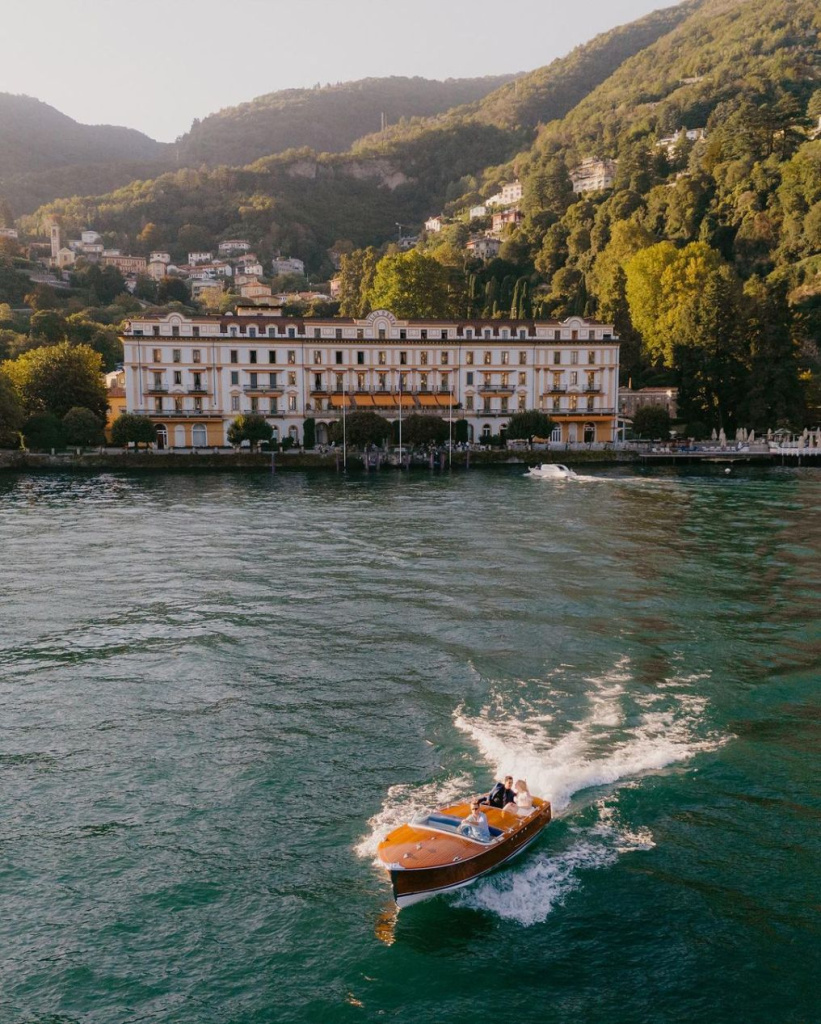
Step 4: Attend the Civil Ceremony
In Italy, all couples must have a legal civil ceremony to legally validate their marriage, even if they also plan to have a separate religious or symbolic ceremony. The civil ceremony is a brief legal formality overseen by a municipal official.
You'll need to appear in person with two witnesses (who must also bring valid ID) at the location specified, which can either be the municipal office or an approved venue site. After signing the legal registrar books and exchanging vows, you'll receive your official marriage certificate from the attending official.
For ceremonies at the municipal office, the atmosphere is more formal and procedural. Venues approved for civil ceremonies are able to provide more personalized settings like beautiful gardens or lake-view terraces.
Step 5: Celebrate Your Love!

With the legal civil ceremony complete, you'll officially be newlyweds! If you had the civil ceremony at the municipal office, you can now proceed to your venue location for any additional religious or symbolic ceremonies you've planned.
How Do I Get Married in Lake Como: FAQs
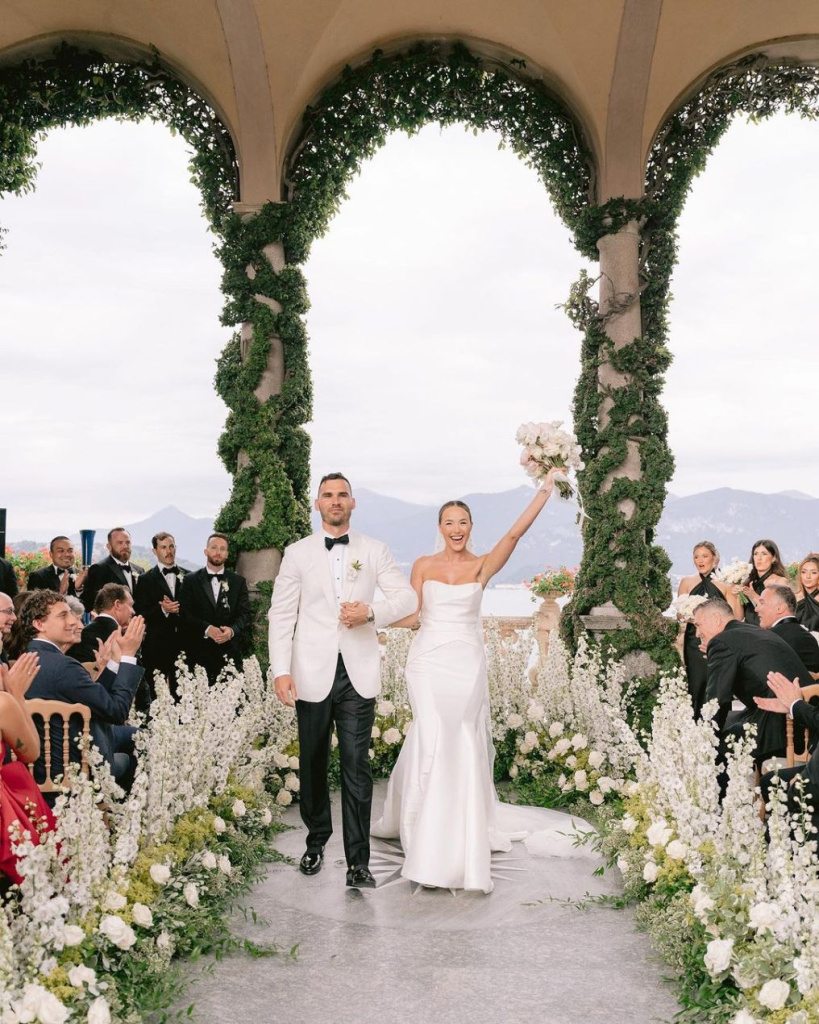
Even after reviewing all the legal steps and requirements, you may still have some lingering questions about getting married in Lake Como as an international couple. Here are some frequently asked questions and helpful answers.
Can we have a religious ceremony in addition to the civil ceremony?
Absolutely! While a legal civil ceremony conducted by a municipal official is mandatory, many couples choose to have an additional religious or symbolic ceremony to make their wedding more personally meaningful. Popular options include a traditional Catholic church ceremony, celebrating ancient rituals like the ancient Roman "tying the knot", or creating your own custom ceremonial experience.
Just be sure to plan the timing of any additional ceremonies around the civil ceremony and recognize that only the civil ceremony will be legally binding in Italy. Your venue coordinator or wedding planner can assist with all the necessary arrangements.
Do we need to be residents of Italy to get married in Lake Como?
No, you don't need to be Italian residents or citizens to get married in Lake Como or anywhere in Italy. As long as you're free to legally marry and can provide all the required documentation verifying your eligibility, Italy welcomes international couples to tie the knot within its beautiful borders.
Can we hire an interpreter for the civil ceremony?
Yes, if neither you nor your partner speaks fluent Italian, you can absolutely hire a professional interpreter to assist with translating during the civil ceremony proceedings. The municipal official will want to ensure you fully understand what is being said and asked of you throughout this legal process.
Many interpreters offer affordable ceremony packages or an hourly rate for their translation services. Your wedding planner can provide recommendations on reliable local interpreters familiar with the specific legal language used during civil ceremonies.

What if one of us needs to change our surname after marrying?
If one or both of you wish to change your surname (last name) after marriage, this is a possibility but involves some additional legal steps. You'll need to update and produce a new passport or ID card, get official translations and published postmarital name change banns through the local municipality, obtain an official deed poll name change document and more.
Due to the extensive paperwork and procedural formalities required when changing your name in Italy, many couples choose to forgo changing surnames and simply rely on using a new "Mrs." before the spouse's existing surname.
We're bringing children to our destination wedding - any tips?
Congratulations on combining families! While the paperwork is pretty straightforward for just the couple, you will need to provide additional documentation like birth certificates and parental authorization forms if you'll be bringing any children under 18 to Italy for the wedding.
Additionally, some venues or vendors may require an adult/child guest count breakdown in advance for lodging or catering purposes. And of course, having activities planned to keep the little ones entertained is highly recommended unless you want a rambunctious crew stealing your spotlight!







